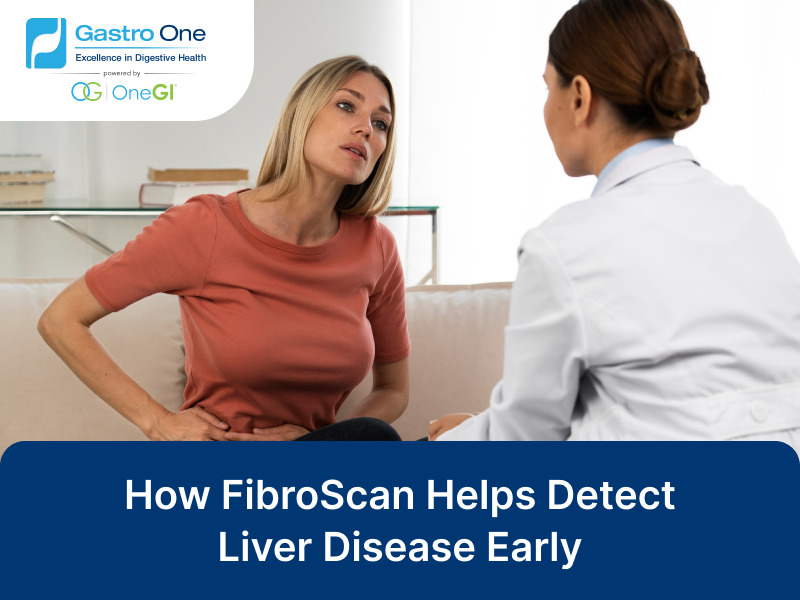
Liver disease affects millions of people worldwide. Many do not realize they have it until it has reached an advanced stage. Early detection is key to preventing serious complications. During Liver Awareness Month, it is important to understand how tools like FibroScan make early diagnosis simple, fast, and noninvasive.
Why Early Detection Matters
The liver performs over 500 essential functions, including processing nutrients, filtering toxins, and supporting digestion. When liver cells are damaged, they form scar tissue. This scarring, known as fibrosis, can progress silently for years before symptoms appear. Without early diagnosis, liver fibrosis can advance to cirrhosis or liver failure.
Regular checkups and a liver health scan can help detect changes before damage becomes severe. FibroScan is one of the most reliable tools for identifying these early signs.
What Is a FibroScan?
FibroScan, also called a liver scan or liver fibrosis test, measures the stiffness of liver tissue. It uses painless ultrasound-based technology to assess liver health. The test takes about ten minutes and provides immediate results.
Unlike a liver biopsy, which involves inserting a needle to collect tissue, a FibroScan test is noninvasive and does not require recovery time. It gives your healthcare provider a clear picture of liver health without the risks associated with traditional procedures.
How a FibroScan Works
During a liver FibroScan test, you lie on your back with your right arm raised. A small probe is placed on your skin over the liver area. The device sends a pulse of energy through the liver. The FibroScan measures how fast the pulse travels. The faster it moves, the stiffer the liver tissue, which indicates fibrosis.
The results are displayed immediately as a numerical score. Your doctor interprets this score to determine the level of fibrosis or fat in your liver.
Benefits of a Liver FibroScan
A FibroScan test offers several key benefits for maintaining liver health:
- Noninvasive: No needles or incisions.
- Quick: The entire liver scan takes about ten minutes.
- Accurate: Provides reliable data on fibrosis and steatosis (fat in the liver).
- Immediate results: Your provider reviews the score right away.
- Repeatable: Safe for follow-up testing to monitor liver health over time.
Because the test is so simple, it is suitable for people with chronic conditions such as hepatitis B or C, fatty liver disease, diabetes, or obesity. These groups face higher risks of liver disease and benefit most from early monitoring.
Who Should Get a Liver Health Scan
Anyone with risk factors for liver disease should consider a FibroScan. These include:
- High alcohol consumption
- Obesity or metabolic syndrome
- Type 2 diabetes
- High cholesterol or triglycerides
- Chronic viral hepatitis
- Family history of liver disease
- Long-term medication use affecting the liver
Even if you have no symptoms, your liver could still be under strain. A liver health scan provides peace of mind and early answers.
Preventing Liver Disease
Liver disease is often preventable with healthy habits. Along with regular FibroScan testing, you can protect your liver by:
- Maintaining a balanced diet low in processed sugar and saturated fat
- Exercising regularly
- Limiting alcohol intake
- Managing weight and blood sugar levels
- Following up with your doctor for any abnormal test results
When liver disease is detected early through tools like FibroScan, lifestyle changes and medical care can prevent progression and improve outcomes.
The Bottom Line
Liver Awareness Month is a reminder to take your liver health seriously. The FibroScan test makes early detection simple and accessible. A quick liver scan helps you and your healthcare provider take action before damage becomes irreversible.
If you are at risk for liver disease, ask your doctor about scheduling a liver FibroScan. Protecting your liver today supports your long-term health and energy tomorrow.



